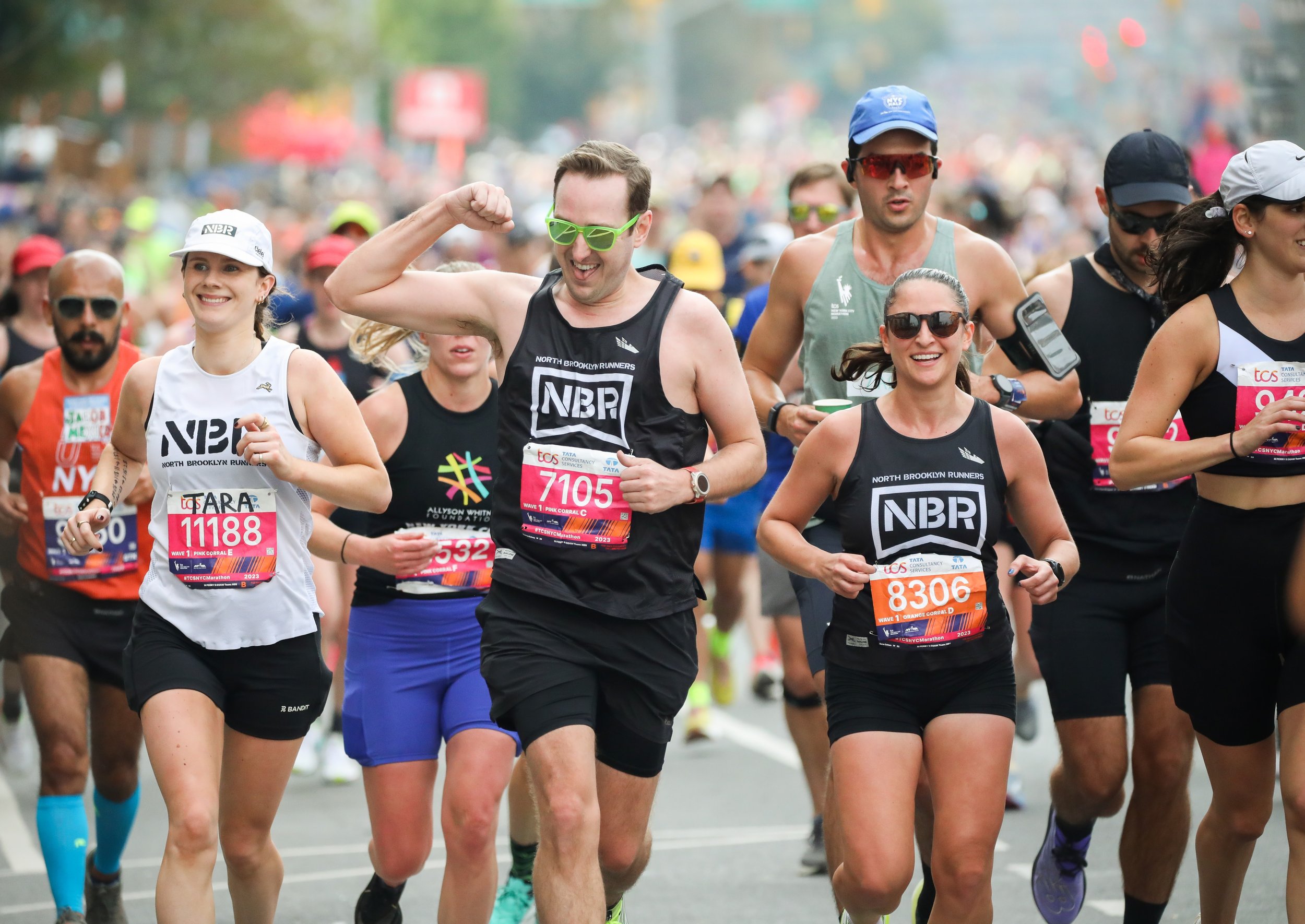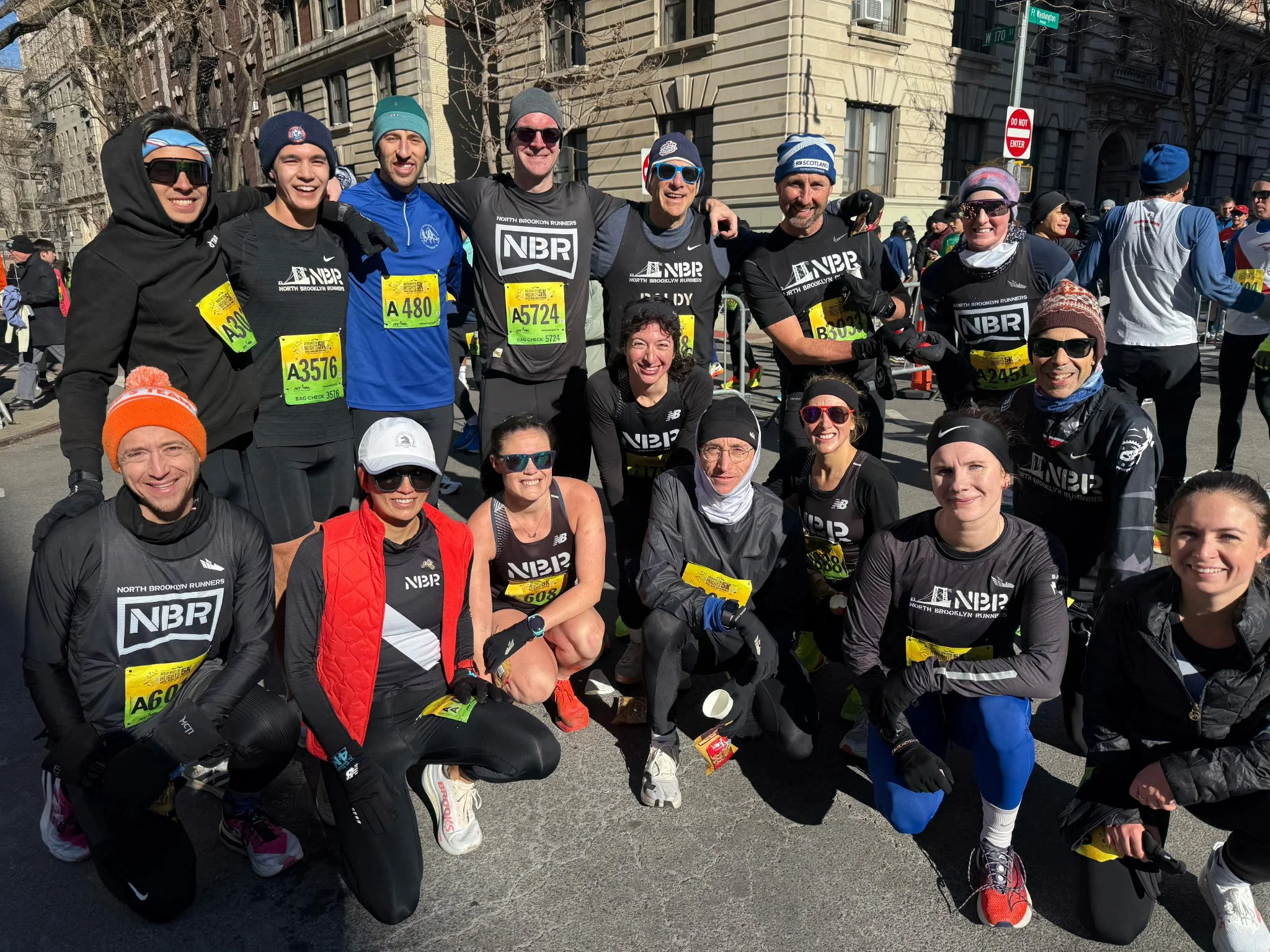Training for the New York City Marathon: 10 things to know before getting started
It’s officially training season for the 2025 TCS New York City Marathon!
Whether it’s your first marathon with North Brooklyn Runners or you’re one of our streakers (shoutout Fernando Feria Garibay), the runup to NYC is always a big time for the club. That’s why we’ve reached out to some of our members who are also coaches for tips and tricks to make the most of New York City’s best day.
Coach Jennifer Herr-McKnight has ten things to know before diving into marathon training:
1. Assess your current fitness
Before diving into any marathon training plan, it's important to evaluate your current running ability as a starting point. What is your typical weekly mileage and pace? Do you have experience running varied workouts (such as tempo, speed and hill training)? Know your strengths, weaknesses and previous experiences in running. This will help you tailor your training plan to your starting fitness level and avoid injury.
2. Build a solid base
Ensure you have a reasonable running base before starting any rigorous marathon training. You should be capable of consistently running a few times a week, at a comfortable pace before ramping up to more challenging marathon training miles and schedule.
Jenn running the Bronx 10 Mile
3. Understand the importance of nutrition and hydration
Marathon training requires a basic understanding of nutrition and hydration - to fuel you with energy for long runs and workouts and also to aid in recovery. Drink lots of water regularly throughout the day and as needed during training and workouts (especially during the Summer.)
Also experiment with pre-run foods and running fuel types during long run training to find what works best for you. Optimal pre-run foods are easily digestible with a balance of carbohydrates and protein - bananas, bagel with peanut butter, yogurt, etc.
Avoid high-fiber foods like beans or cabbage, or any other foods which may upset your stomach. Running fuel such as gels, chews or sports drinks should be taken every 6 miles or 1 hour during a long run.
4. Make sure you have proper and comfortable gear
Long run training for a marathon requires comfortable and supportive shoes, moisture-wicking clothing, as well as quality socks and perhaps a hydration system. Most running stores (such as Brooklyn Running Company or Fleet Feet) will take the time to properly fit you for running shoes and can recommend quality clothing and gear. (Personal tip: skin chafing can cause major post-long run pain, so make sure you have a skin lubricant on-hand to apply to areas where clothing seams may rub. )
5. Incorporate stretching, drills and proper warm-ups / cool-downs into your training
Maintaining flexibility and easing in and out of your marathon training runs and workouts will help prevent injuries and improve overall performance. A quality warm-up at the start of your runs should include some stretching and movement of your quads, calves, hamstrings and hips, along with at least 1 very easy mile to kick-off the run. A similar practice should follow for cool-downs.
6. Plan for recovery
Rest and recovery are crucial for marathon training. Get in the habit of including rest days, easy runs, and active recovery methods (such as foam rolling and stretching) into your weekly schedule and make sure you are getting enough sleep to train well for your marathon. (Ideally, 8 hours a night.)
7. Understand the Time Commitment / Expect the unexpected
Marathon training requires a very big time commitment for a number of months. Most training plans will get you to a minimum of 40 miles per week and up to 7 hours a week of running, which can mean sacrifices to social schedules, time away from family or a complicated work-life balance. Understand that life happens to all of us regardless of marathon plans - training can easily be disrupted by illness, injury, or other commitments. Show yourself grace, and be prepared to adjust your schedule, goals and expectations in the event of training interruptions.
8. Practice positive self-talk
Marathon training and racing can be as much of a mental challenge as a physical one. Develop strategies for maintaining a positive mindset, such as positive affirmations, visualization techniques or playing music to hype you up. These tools can be used throughout your training and during the race!
9. Don't be afraid to slow down or walk
Especially during hot summer months, slow-down or walking breaks are perfectly acceptable and may be necessary to maintain your wellness while on a run. Incorporating walk/run intervals into training can help you manage fatigue and maintain workout/interval paces.
10. Find motivation and support in your run community at NBR!
Surrounding yourself with a supportive running community will help keep you motivated and excited to follow through with your training. NBR's weekly run schedule generally follows most marathon training plans (with easy and road runs at the start of the week, tempo and speed workouts mid-week and long runs on the weekend,) so it's easy to join group runs, find training partners and get the miles done with the support of your run club!





